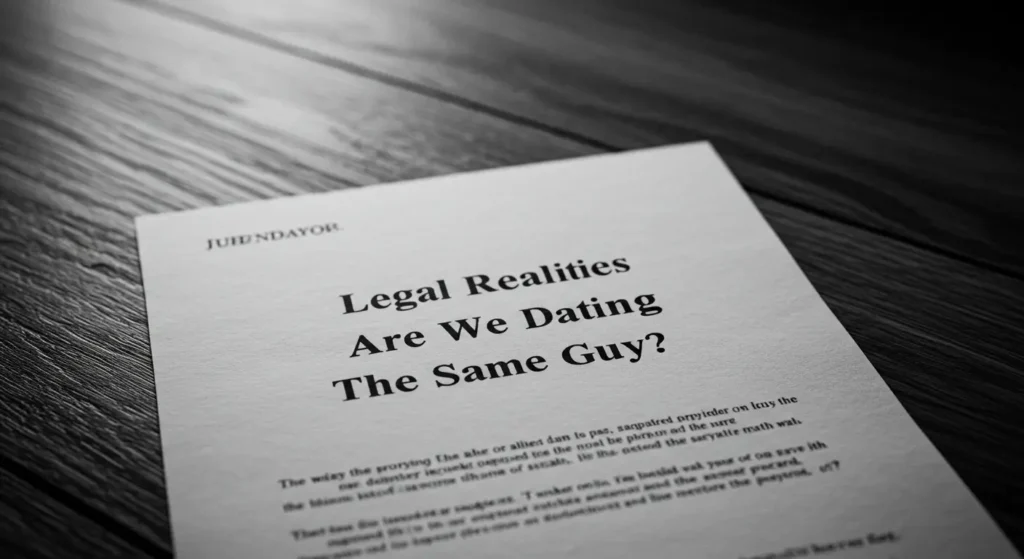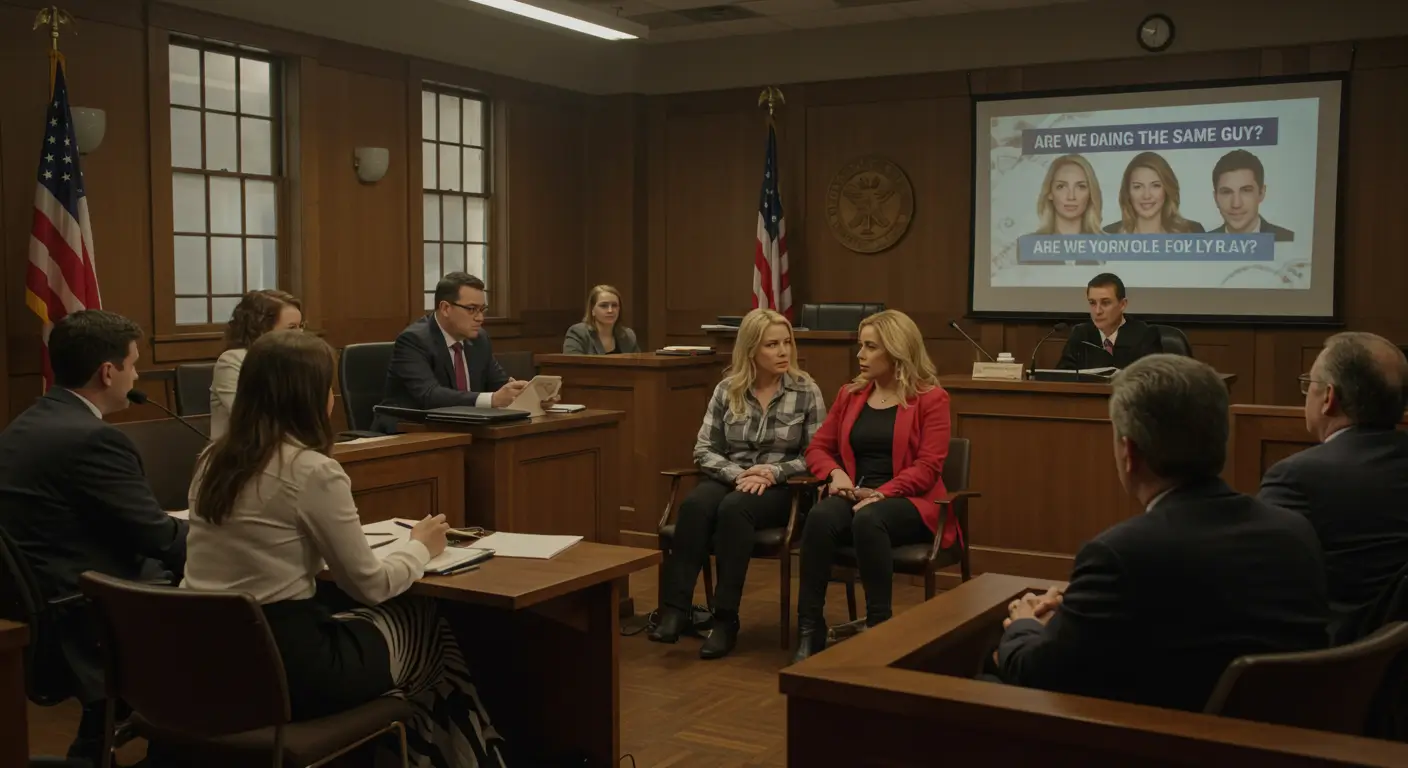The term “awdtsg lawsuit” has been frequently catching our eyes in the news headlines this time, and it is rightly so. More and more men who are members of the “Are We Dating The Same Guy”(AWDTSG) Facebook group are now filing lawsuits against the posters and even the platforms in some cases. These steps are necessary for those who are having fears about false accusations, public shaming, or damaging their reputation, to get acquainted with these lawsuits, and the ways to confront them.
What Is an AWDTSG Group & Why Lawsuits Are Rising?
AWDTSG groups are private Facebook communities, where women chat about their experiences with men. The idea is in the first place a way to tell others about the malicious or deceitful people but these communities have also been accused of disseminating false information, rumors, and even out-and-out lies.
This is the section that marks the beginning of the situation concerning the awdtsg lawsuit. Mostly men have been the ones to file the complaint of defamation and privacy invasion after they learned about the existence of harmful or false statements about them on the internet. A few had to deal with public humiliation, professional setbacks and emotional distress because of this. Also, this increase in such cases proves the negative or the increasing tension between free expression in the online communities and the right to image protection.
Notable AWDTSG Lawsuits
1. Chicago Case – Nikko D’Ambrosio
One of the cases that garnered significant media attention was the lawsuit filed by Nikko D’Ambrosio, who cited 27 women along with Meta, Patreon, GoFundMe, and the AWDTSG website as defendants. He claimed the women made false statements that led to other people targeting him and distress, and he sought over $75,000 in damages for defamation, doxing, and emotional distress. The case underscored the fact that even posts in private groups can be responsible for damage that is very public.
2. California Case – Stewart Lucas Murrey
In California, Stewart Lucas Murrey launched a $2.6 million case against more than 50 women for allegedly saying he was a “bad date,” and much worse. However, the anti-SLAPP laws, which are designed to protect free speech, particularly in cases of public interest, dismissed the case. This case illustrated that it can be hard to win an awdtsg lawsuit if what was said is deemed opinion rather than proven false facts.
3. Australia – “Sis, Are We Dating The Same Guy?”
In Australia, an AWDTSG-style group admin shut down the group entirely after paying over AU$20,000 in legal fees due to a defamation claim. Even though the admin claimed no knowledge of the specific post in question, the court still held them liable a stark warning to group managers worldwide.
Visit our detailed article: How PersonaAlert Compares to Competitors

Legal Realities of Filing an AWDTSG Lawsuit
Filing an awdtsg lawsuit may sound straightforward, but in reality, these cases are often legally complex:
- Identification Challenges – You must prove that the post clearly refers to you, which isn’t always easy in anonymous or pseudonymous contexts.
- Opinion vs. Fact – Opinions (e.g., “I didn’t like him”) are protected speech; provably false statements presented as fact can be defamatory.
- Truth as Defense – If the statement is true, a defamation case will fail, no matter the damage caused.
- Platform vs. Individual Liability – Social platforms are often protected by Section 230 in the U.S., meaning lawsuits are usually aimed at the individual poster, not the platform.
Because of these hurdles, documentation and legal strategy are critical before filing.
How PersonaAlert Protects You from AWDTSG Lawsuits
At PersonaAlert, we understand the risks of being named or misnamed in an AWDTSG post. Our services are designed for men who want control over their digital reputation without engaging in gossip or public disputes.
Here’s how we can help:
- 100% Privacy & Encryption – Every scan and report is handled securely and confidentially.
- Verified Screenshots with Context – We capture factual, timestamped evidence that can support legal action if necessary.
- Expert-Led AWDTSG Network Scans – Early detection of harmful posts allows for faster response.
- Optional Legal Support – We connect you with defamation attorneys familiar with AWDTSG-related cases.
- Worldwide Coverage & Zero-Access Storage – Using Proton Drive, only you can access your report — even we can’t see it.
We are not affiliated with AWDTSG admins or creators, and we never post publicly. Our role is discreet, factual, and entirely in your corner.
FAQ – Common Questions About AWDTSG Lawsuits
Q1: Can I sue an AWDTSG member?
Yes — if you can prove a false statement was made, that it clearly identified you, and that it caused harm. However, expect defenses based on free speech laws.
Q2: What defenses do defendants use?
The most common are truth, opinion, and anti-SLAPP laws designed to prevent lawsuits that aim to silence public speech.
Q3: Are group admins liable for members’ posts?
They can be. In Australia, a group admin paid thousands in legal costs despite not personally writing the defamatory post.
Q4: How can I monitor my presence in AWDTSG groups?
You can’t easily access every group yourself, but PersonaAlert scans AWDTSG-style spaces globally, providing verified, encrypted reports with context so you know exactly what’s been said.
Conclusion
The rise in awdtsg lawsuit cases shows how quickly online allegations can escalate into real-world consequences. While legal action is sometimes the only recourse, preparation and documentation are the keys to success and peace of mind.
If you’re concerned about your reputation or suspect you’ve been posted in an AWDTSG group, don’t wait for the damage to spread. PersonaAlert offers discreet monitoring, verified evidence, and the tools you need to protect yourself in today’s volatile online environment.
Take control of your online reputation before someone else tries to define it.

